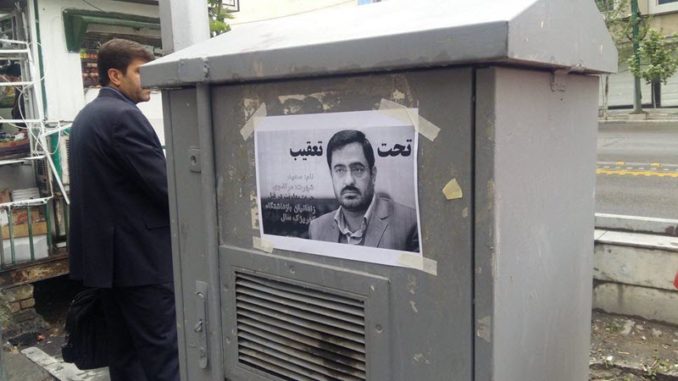
Iranian regime’s former prosecutor general and infamous judge, Saeed Mortazavi, was due to start a 24-month prison sentence for playing a role in the execution of detained prisoners. A spokesman for the judiciary of Iran Regime, Gholamhossein Mohseni Ejei, has announced that Mortazavi has disappeared. The news comes shortly after the media adviser to President Hassan Rouhani warned that this may happen.
There has been much criticism about the case since the very beginning. The judicial process has lasted almost a decade. It was established that Mortazavi has broken the law on a number of occasions. He has been part of a harassment campaign against journalists and had a role in the 2003 murder of Zahra Kazemi, a Canadian-Iranian journalist, in detention.
Mortazavi’s role in the murder of three young Iranians after the 2009 uprising. The three men were detained in a camp just outside the country’s capital city. One of the victims was Mohsen Rouholamini. His father, Abdolhossein Rouholamini, has spent years campaigning for justice and has tried his utmost to ensure that Mortazavi is held accountable for his actions.
Rouholamini’s lawyer, Majid Taheri, said that not only has Mortazavi managed to disappear, but his case files for the trial are no longer available at the court.
Media outlets in the country confirmed that Mortazavi was handed a two-year sentence but that the authorities have not been able to arrest him as his whereabouts remain a mystery. Several officials have warned that Mortazavi may attempt to leave the country so have called for heightened vigilance.
Mortazavi was a former judge in Tehran and he was given the nickname “the hangman of the press”. He occupied the position from the mid-nineties for more than a decade. Journalists were in particular a target for Mortazavi and he imprisoned many. He also put a ban on dozens of reformist publications.
He has been involved in some horrific and unjust acts of repression in the style of the cruel and corrupt regime. People have taken to social media to comment on the case and many have questioned whether Mortazavi disappeared on his own initiative or if he was given help by the authorities. After all, he served the regime in its cruel and unjust persecution of dissidents, so perhaps the authorities are repaying the favour.
Mortazavi can give an important insight into many of the regime’s crimes over the years. However, it is likely that the secrets have disappeared with him.
Over the past few years, there have been numerous calls for justice for the opposition members and dissidents who have been killed by the regime.
There has been a renewed call for justice for the 1988 massacre in which more than 30,000 people were killed during one single summer. Still, the crime – which is considered a crime against humanity – has gone unpunished. The perpetrators of the massacre have since occupied high positions in the regime and are basking in impunity.

